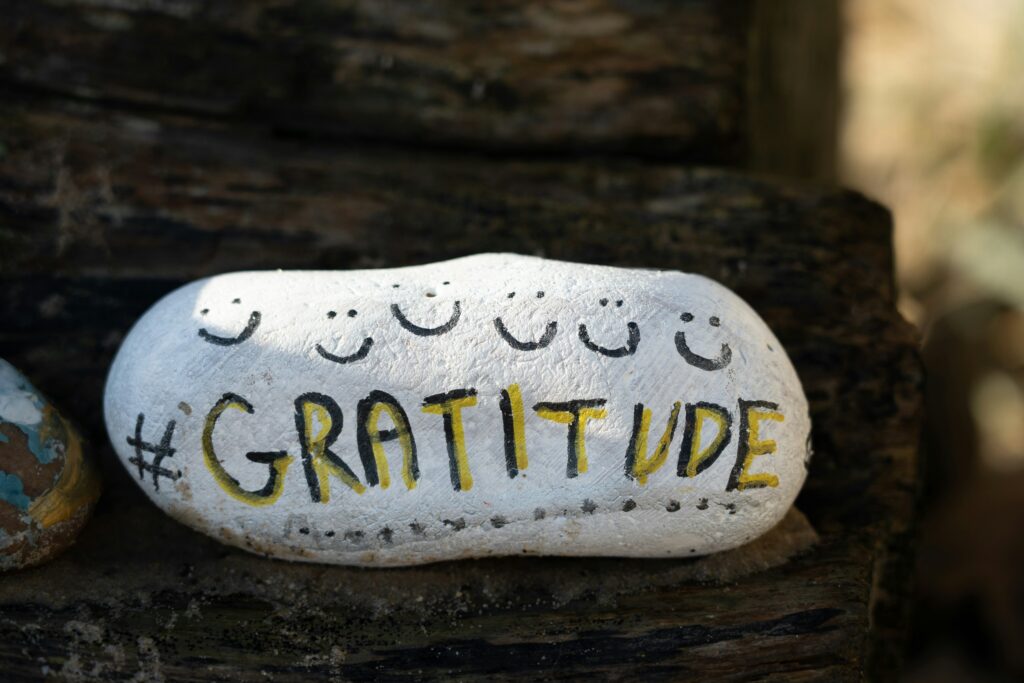The Role of Gratitude in Endurance Training

Endurance athletes challenge themselves physically and mentally throughout their training and racing. Some days, they might feel powerful and confident, while others, they might struggle to recognize what they have accomplished, leaving them frustrated. Regardless of the training circumstances for endurance athletes, they always have access to one element: gratitude.
Gratitude can enhance self-compassion and appreciation, improving performance and overall well-being. Gratitude isn’t just a feel-good experience; it’s a practice that incorporates being grounded and present in the moment.
The Science Behind Gratitude and Performance
Implementing gratitude practices through a mindfulness approach has been found to have numerous benefits for the mind and body, including stress reduction, improved sleep quality, and enhanced well-being. In addition, gratitude helps athletes become more self-compassionate and self-aware.
Practicing gratitude activates the brain’s reward system, releasing dopamine and serotonin. When these “feel-good” neurotransmitters are released into the body, endurance athletes may experience a flood of positive feelings.
Learning to Shift Perspective & Implement Gratitude
Many endurance athletes find it challenging to stay consistent with training. Gratitude can offer a shift in perspective when waking up to an early morning alarm or pushing through pain or discomfort.
One of the best techniques is to reframe statements. If an athlete uses the phrase, “I have to…” consider shifting to, “I get to…”. For example, instead of saying, “I have to run 10 miles today,” switch to, “I get to run 10 miles today.”
This strategy might seem very simple, but reframing has been found to assist athletes in reconnecting with their mission and purpose. It also helps athletes find meaning in what they are pursuing, helping them appreciate the moment.
ADVERTISEMENT
 </center
</centerUsing Gratitude as a Mental Skill
Athletes who practice gratitude may develop strategies to assist them in self-regulation and responding under pressure. Implementing gratitude as a mental skill can help athletes reframe negative thoughts, maintain perspective during challenging moments, and enhance motivation.
Here To Include Gratitude In Your Training:
- Gratitude Journaling: After training sessions and races, take a few moments to write down three things that you’re grateful for regarding that session. This could be things such as your body, the weather, something you saw in nature, connecting with a friend, etc. Extra tip- keep a notebook in your car or set up a note section in your phone for easy access!
- Gratitude Mantras: How you speak to yourself is extremely important! Mantras are an excellent way to help your brain enhance its ability to focus on one element at a time. They can also help you to stay present and centered. Examples of gratitude mantras could be, “I’m grateful for this opportunity,”; “I am strong and powerful,” and “I believe in myself.”
- Pre-session Reflection: Before your training session, allow yourself to pause and focus on your intention. Take a few seconds before you start training and reflect on something positive. This can help your mind begin to see the positives that surround you.
- Celebrate the Wins – No Matter How Small: Learning to acknowledge and celebrate ALL your wins is extremely important. Even though you may feel that celebrating and being grateful is only for milestones, it should also be implemented for every step of your journey! Acknowledging these wins helps you recognize the growth you have made along the way.
- Recognize Your Village: Every athlete has some level of support system in place that is with them during the good times and the challenging times. Share your appreciation for your coaches, teammates, friends, and family. Let them know how their support plays a meaningful role in your journey.
As an endurance athlete, you need to understand that implementing gratitude into your training is a process. Not much different than your physical training plan. It doesn’t happen overnight, but small steps lead to big change! Implementing gratitude as a part of your mental skills training enhances purpose, motivation, and acceptance! Take it one step at a time and consider what you appreciate experiencing or having as you work towards achieving your goals!
ADVERTISEMENT

JoAnne Bullard is a Doctor of Sport and Performance Psychology and a Certified Mental Performance Consultant through the Association for Applied Sport Psychology. She is also a Certified Strength and Conditioning Specialist through the National Strength and Conditioning Association.
She serves as a tenured Associate Professor at Rowan University and is the owner of Absolute Fitness, LLC. Her goal is to provide a holistically applied approach for clients through performance psychology consulting. She has experience working with athletes of all ages, including endurance athletes, in individual and group sessions. Her research areas include mindfulness, performance anxiety, goal setting, coping strategies, and mental well-being of athletes.
She has completed five marathons, numerous half-marathons, and is always looking for her next race.








